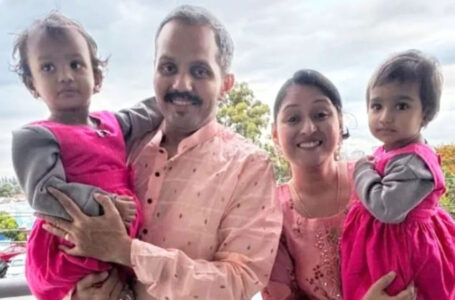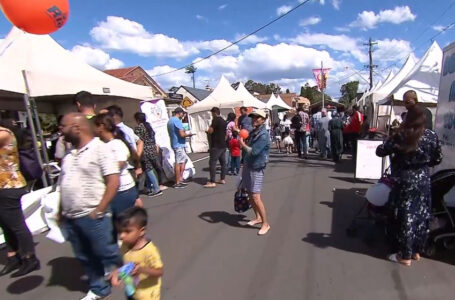Is it ‘The End’ or ‘The Beginning’?

A new research found that death is pleasant and inspiring experience.
We all have our own different versions of what happens after death. Some people believe in the whole ‘going to hell or heaven’ concept while others simply ridicule such possibilities and believe that after death, you are gone, you are nothing but worm food. But whatever people say, death is a frightening and no matter what you have heard and what you believe in, let’s face it, no one knows what really happens after you are dead. The mystery of death is so intimidating as well as fascinating that we spend our entire lives trying to understand and uncover the truth behind this mystifying occurrence.
Various scientists, psychologists and philosophers from around the world are trying to solve the truth behind death. Bianca Nogrady is a science journalist who attempts to explain the concept of death in her book, ‘The End’. In an interview she admitted that in the starting she was scared like everyone else. “The idea of death is daunting, more than daunting, it’s terrifying”, she said. She further added that we try to ignore death and pretend that we will live forever until it happens to someone we love. For Bianca that ‘someone’ was her nana.
She was at her nana’s side all the time when she was about to die and she defines the experience as the one she doesn’t regret even a little bit. Based upon her own experience and the conversations she had with friends who describe similar experiences, Bianca suggests that when you are with a loved one who is about to die, you are imparted with wisdom. You are closer to the reality of life. After her nana’s demise, she became curious to understand the complexities of death.
She wondered why death is such a taboo topic. “Why to shut it out of our lives or hide it away, so that we might not be reminded of our own mortality.” A note from her book says that death is like a giant black hole in the space. We can’t see it, touch it or smell it but we all know it’s out there somewhere and no one can avoid its pull. Sooner or later, everything in its path is drawn into it and once caught nothing and no one can escape from the black hole.
The description sounds scary, lonely and mystified. Yet, according to a newly found research, ‘afterlife’ is far from being hellish. The experience of dying feels even more real than real. Most of the people who had a near death experience say that it was a pleasant and uplifting feeling. Nogrady also concludes in her book that the experience of dying is heavenly. She describes the account of Dr Cherie Sutherland, who had a near death experience at the age of 23 while she was giving birth to her second child. Dr Sutherland says that she was terrified and then suddenly she found herself out of her body. She describes the feeling as a blissful, warm experience. She felt protected, relaxed and loved and the first thing she said to herself was, “Oh, I must be dead.” She says she made a conscious decision to return to this world. According to her, the other side of the world is not dark or scary. It is light-filled and enriching.
After the incident, Sutherland’s life changed. Her mind is now open to possibilities which are beyond the reach of science or consciousness. Nogrady says that her life has also been transformed dramatically after doing extensive research on the topic for her book. With each interview, she became more and more aware of what life is all about. One particular story she thinks is a perfect illustration of her conclusions is the story of a man on his death bed who was in substantial pain. The nurses told his wife that he is still holding on.
He was waiting because he wanted to talk to his family members who were on their way to visit him but it was about to take a couple of days. His pain was incredible so he got his family on phone. They talked to him in turns and after taking to all the people he was close to, he looked at his wife and said he will always love her and died.
The man’s story instilled the ‘idea of choice’ in Nogrady. The concept is also recognised by the science fraternity to some extent. A study by Columbia University in 2003 suggests a concept very similar to the ‘idea of choice’ which is known as the ‘death elasticity’. The study says that people on their death beds have (to some extent) the choice of holding on or giving up.
Nogrady’s book also talks about the fuzz around what death is. She discussed the topic with ICU specialist, Dr Ray Raper who works at the Royal North Shore Hospital in Sydney. His views on the subject are quite enlightening. He says that people think that they’ve got life in one box and death in another box. We think that there is a huge difference in being alive and being dead. He says that the reality can be explained by taking an example of the continuum – a graded box with one end being alive and the other end being dead.
Nogrady concludes from Dr Raper’s views that death can be processed just like birth. She says that we can never know how and when we will meet our end but as we do birth planning, we can do death planning. We can express preferences and try to guide our feelings. She also added that since an average Australian lives until the age of 80, discussing it and having plans for it is quite important. If you discuss the intricacies surrounding death openly, you are letting go of your fears related to it and this will help you live better and more peaceful life.
In her book she has written that the overwhelming message she has taken away from so many stories and experiences, is that death is a unique and extraordinary opportunity.
Death gives us an opportunity to grow and to get to know our loved ones in a way which is rarely possible in our day to day lives. It enables us to explore and experience relationships and helps us understand what it really means to be alive.







